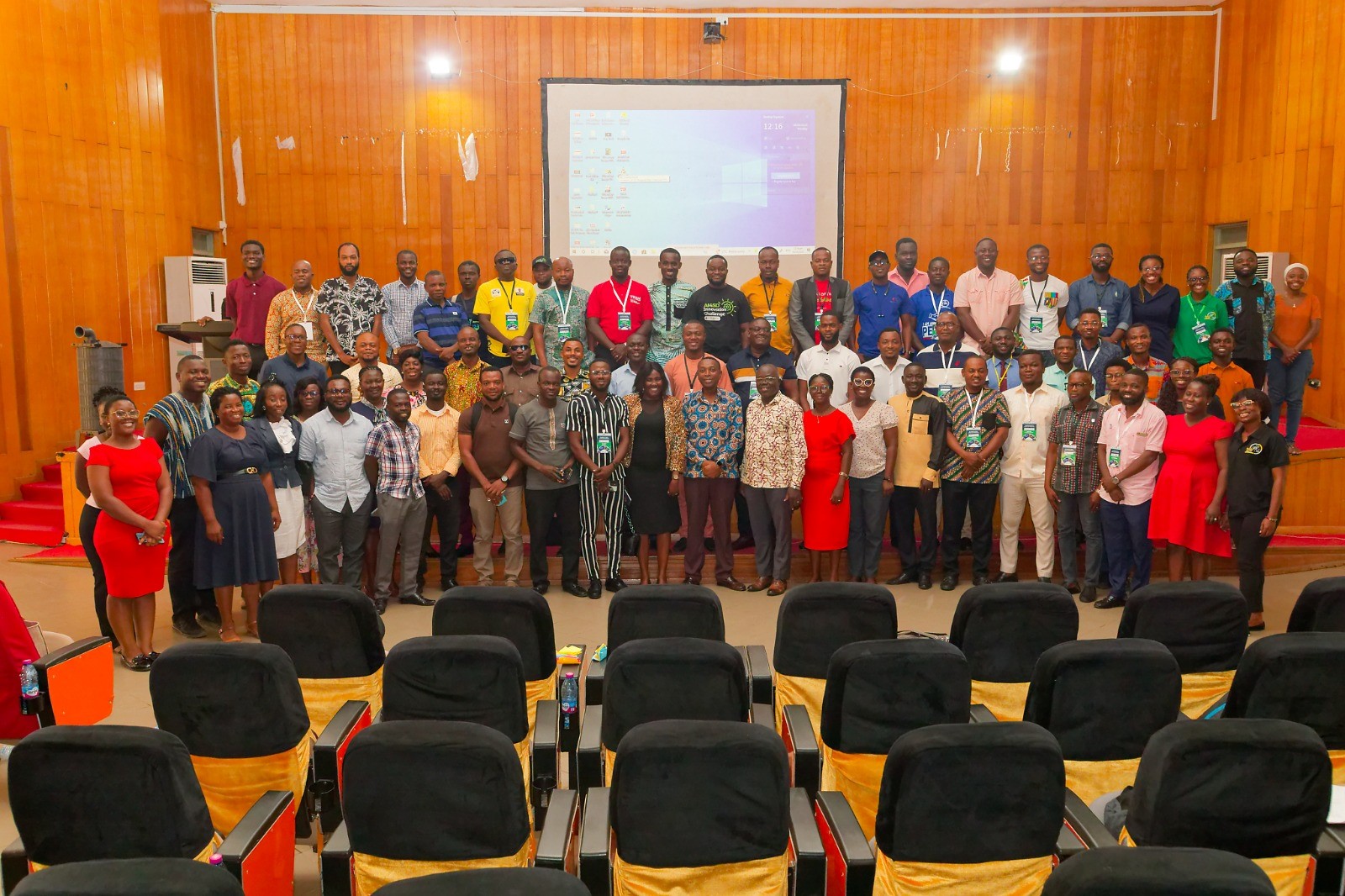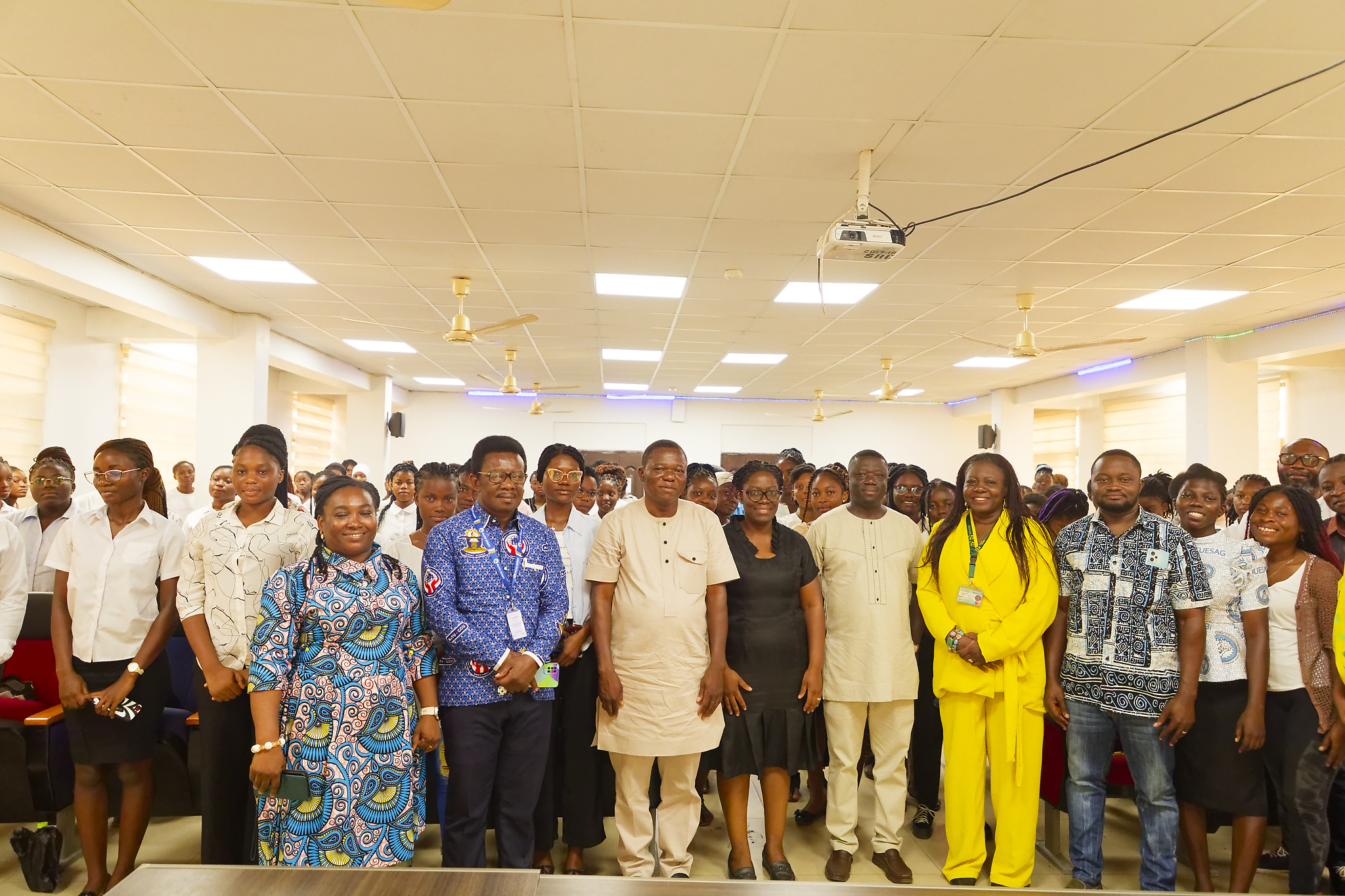The RAIL robotics in-person training for mentors (SHECodes KsTU & TTU) and regional STMIE coordinators officially began on 5th May, 2025, with an insightful opening ceremony at the Kumapley Auditorium at KNUST. The weeklong program, from 4th to 10th May 2025, is a flagship initiative of Women in Technology and AI in Education Themes at RAIL Phase II and AI4SD Projects, respectively, under the Responsible AI Lab (RAIL) at KNUST.
These projects are ably funded by Artificial Intelligence for Development (AI4D), International Development Research Centre (IDRC), Foreign Commonwealth and Development Office (FCDO) and French Embassy in Ghana.
The Training of Trainers (ToT) model used for the RAIL Robotics Club operation builds capacity through empowering the mentors with the knowledge, practical skills and competence to train learners, also, develop inclusive ethical solutions to impact development in the communities and beyond.

Dr. Eunice Ayereko Adjei, the AI in Education Theme Lead
Ing. Dr. Mrs. Eunice Akyereko Adjei, the AI in Education and Women in Technology Theme Lead, opened the session. She thanked participants for their commitment and said the training goes beyond competitions. “We are here because we believe in preparing students not just for competitions, but for the future workforce and lifelong learning in AI.” She said AI in education is no longer optional, but a necessity.
Dr. Mrs. Adjei also introduced the 14 schools under the AI for Sustainable Development (AI4SD) initiative, which focuses on LEGO robotics and the eight schools in RAIL Phase II, which are pursuing machine learning. She finally introduced the members of both project teams, including trainers and research fellows who will facilitate various activities throughout the week.
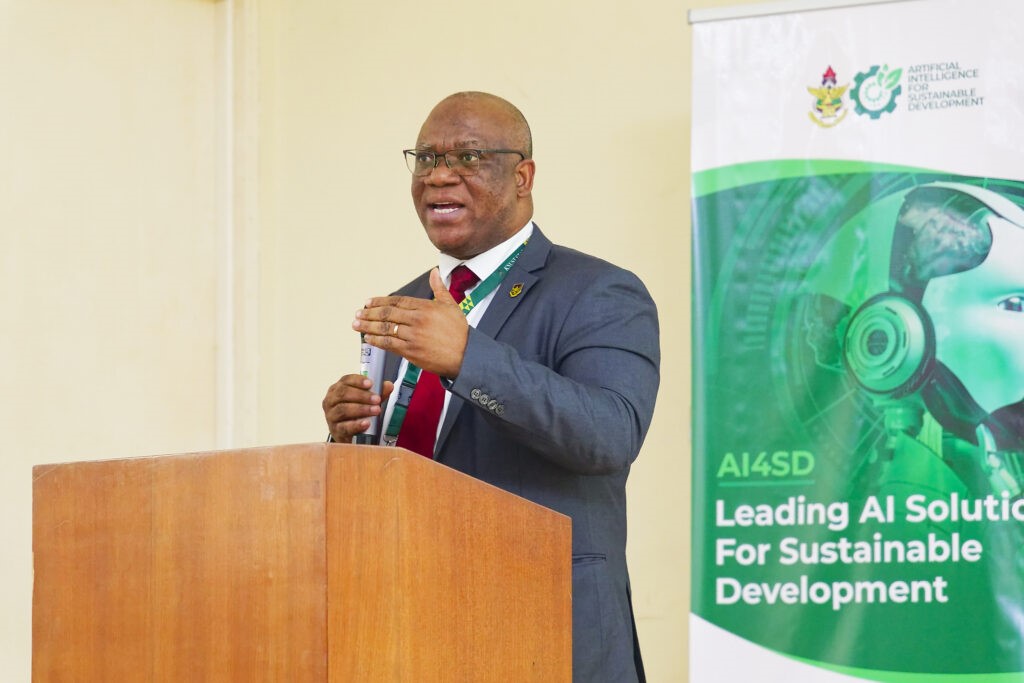
Prof. Jerry John Kponyo, the Project Lead for AI4SD and the Principal Investigator, Scientific Director of RAIL,
In his opening remarks, Prof. Jerry John Kponyo, Principal Investigator and Scientific Director of RAIL, and the Project Lead for AI4SD, set the program’s strategic vision in clear terms. “Artificial Intelligence is not just coming, it’s already here, and the question is whether we will equip our youth to take advantage of it,” he said.
Citing a World Economic Forum report, Prof. Kponyo noted that AI is expected to introduce 97 million new jobs globally while rendering 85 million obsolete. “Africa’s median age is 19. If we get this right, we’re not just solving unemployment, we’re transforming economies,” he added. He emphasised the program’s sustainability goals and called on the mentors to be stewards of the robotics kits they’ll receive. “If we are going far, we cannot go alone. Everyone in this room is a builder,” he said.
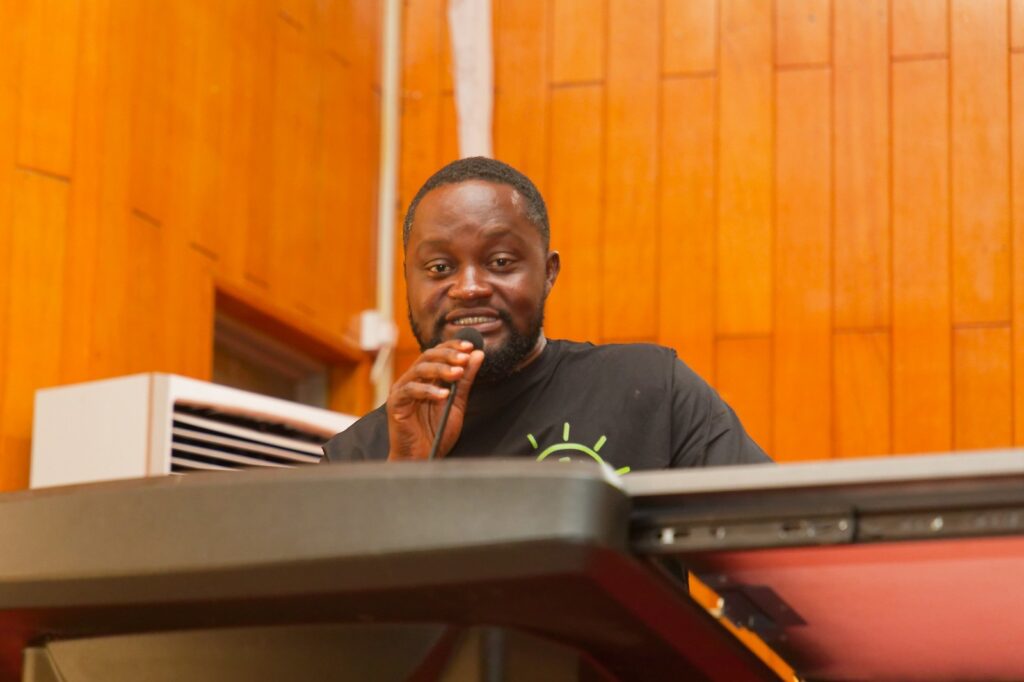
Dr. Kingsford Sarkodie Obeng-Kwakye, a team member of the AI in Education
Dr. Kingsford Sarkodie Obeng-Kwakye, in delivering the purpose of the gathering, said, “We’re here not just to learn but to be empowered.” He indicated that the training aims to build a network of mentors capable of training several students. “We’re creating a ripple effect,” he asserted.
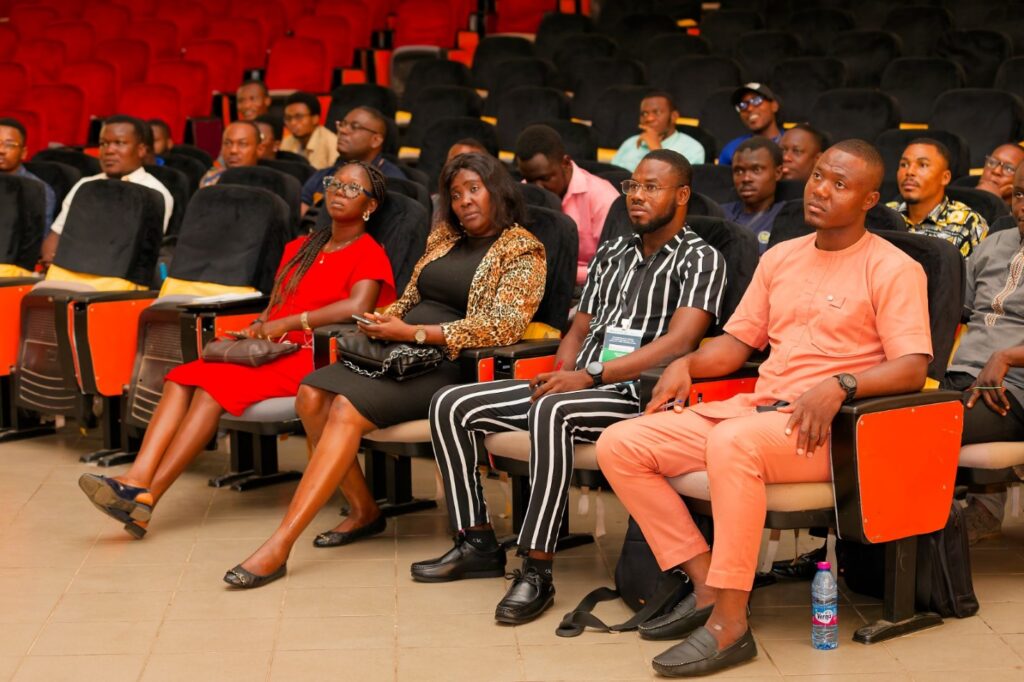
Cross-section of participants during the opening ceremony
In attendance at the training are 22 RAIL Robotics schools across 10 regions with a total of 48 mentors, 11 regional STMIE coordinators and four coordinators of SHECodes at KsTU & TTU for intensive, hands-on training in LEGO robotics, Arduino coding, machine learning and AI applications.
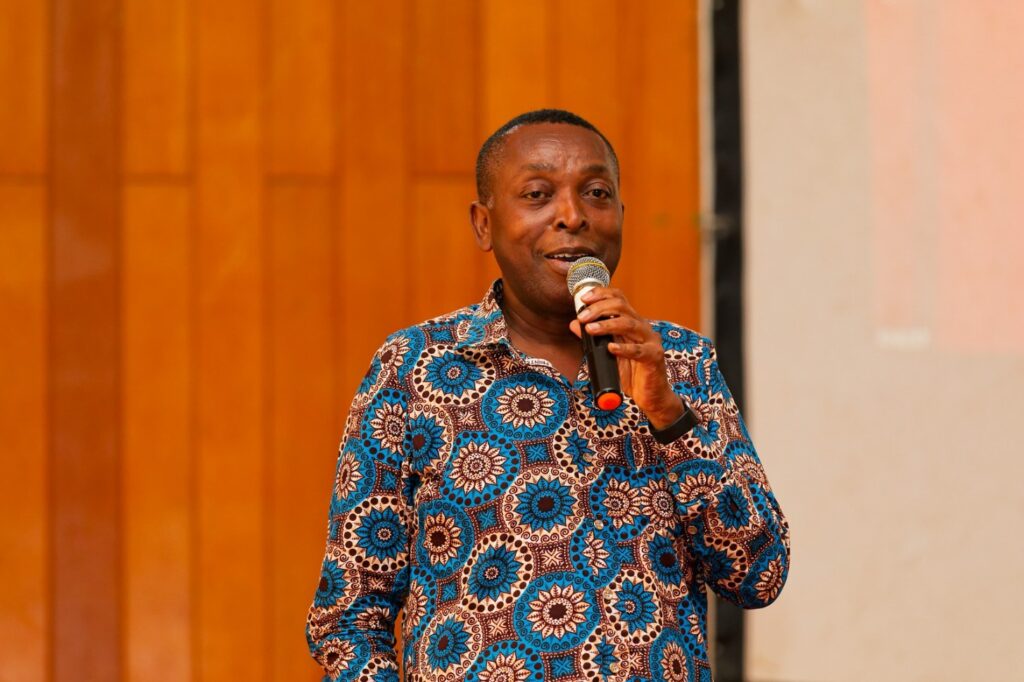
Dr. Yaw Okraku Yirenkyi, Director of Studies at the Kofi Annan ICT Centre and Co-founder of the Ghana Robotics Academy Foundation
A keynote presentation was delivered by Dr. Yaw Okraku Yirenkyi, Director of Studies at the Kofi Annan ICT Centre and Co-founder of the Ghana Robotics Academy Foundation. His session challenged participants to have the right mindset and build a character of honesty, integrity and timeliness. “There’s something wrong with how we do things,” he said bluntly. “For this program to succeed, we must first fix ourselves. We must be honest, punctual, and driven by values, not titles.”
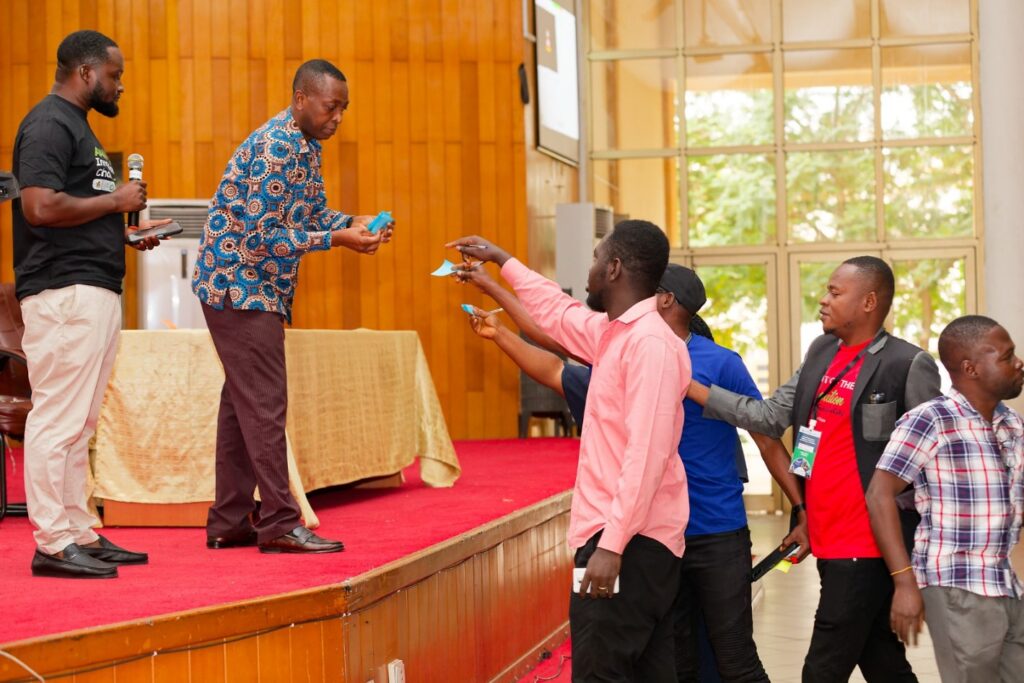
A photograph of participants during the reflective exercise
He led a reflective exercise using coloured papers, in which participants answered five questions. They wrote their responses anonymously, with follow-up questions on financial commitment, accountability, and readiness to work with students.
“Character must come before competence,” Dr. Yirenkyi said. “Too many programs have come and gone with no results because we ignored that.”
He also shared sobering reflections from years of running the Ghana Robotics Academy, including winning the Robofest Championship. “Let this not be another failed initiative. You have one of the finest opportunities to change lives for Ghana and eternity.”
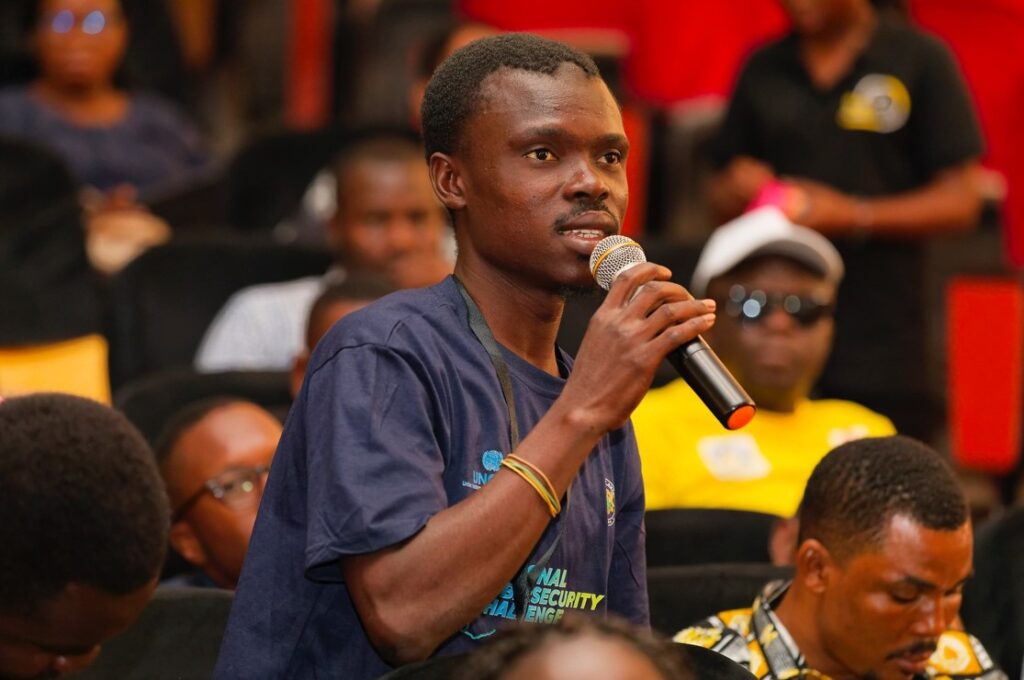
A participant posing his question during the Q&A session
During the question time, participants raised thoughtful concerns about project continuity, funding, and whether robotics training was being positioned only for competitions. In response, Dr. Eunice clarified that the goal is not to win trophies but to integrate robotics into everyday learning and problem-solving. “We want to see projects from these sessions go all the way to startups,” she said “We’re building problem solvers, not just competitors.”
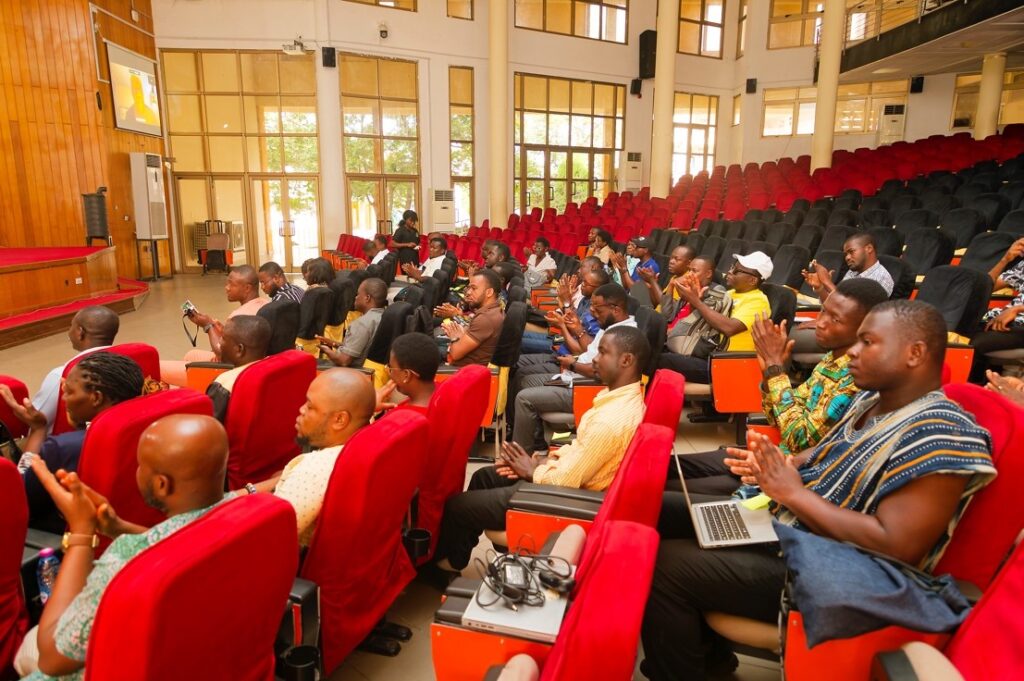
Overview of participants
Closing remarks were given by Prof. Kponyo, who urged participants to see the training as a shared responsibility. “Nothing good comes without sacrifice,” he said.
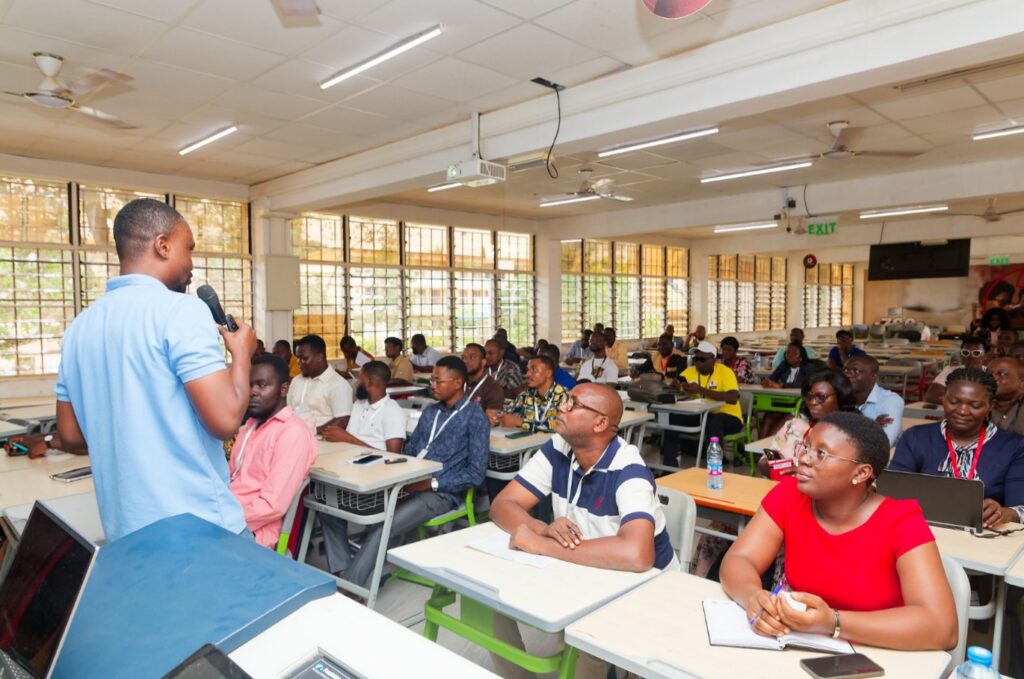
Overview of participants during the technical training
With the ceremony concluded, the technical training began. Monday’s session focused on the Introduction to Coding, taught by Dr. Obuor Agyekum. Topics included the significance of coding, common programming languages, and practical exercises. He concluded the session by introducing the participants to robotics and typical components in a robot and applying the fundamental courses undertaken in high schools in a robotics setting, setting the stage for a packed week of practical exploration.

Tour of the Responsible AI lab
Participants ended the day with a campus tour and visits to the College of Engineering Innovation Centre, Dipper Lab, and the Responsible AI Lab.
The training ends on Friday, 9th May, culminating in further robotics assembly, AI projects, and a collaborative showcase.

